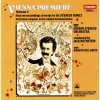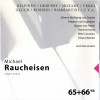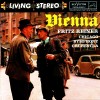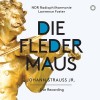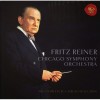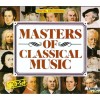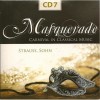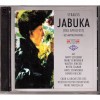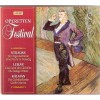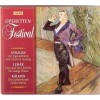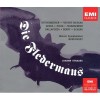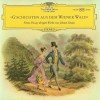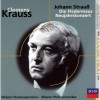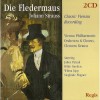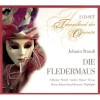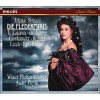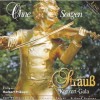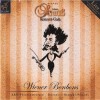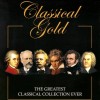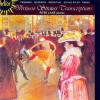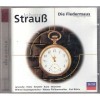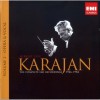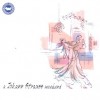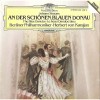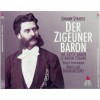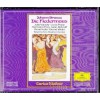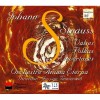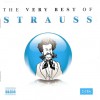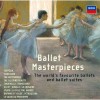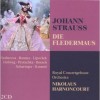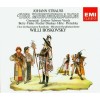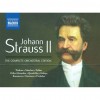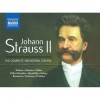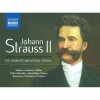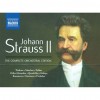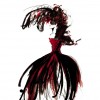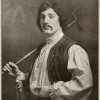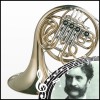Biography
Early life
Strauss was born in Vienna, Austria, on 25 October 1825, to the famous composer Johann Strauss I. His father did not want him to become a musician but rather a banker; nevertheless, Strauss Junior studied the violin secretly as a child, ironically with the first violinist of his father's orchestra, Franz Amon. When his father discovered his son secretly practising on a violin one day, he gave him a severe whipping, saying that he was going to beat the music out of the boy. It seems that rather than trying to avoid a Strauss rivalry, the elder Strauss only wanted his son to escape the rigors of a musician's life. It was only when the father abandoned his family for a mistress, Emilie Trampusch, that the son was able to concentrate fully on a career as a composer with the support of his mother.
Strauss studied counterpoint and harmony with theorist Professor Joachim Hoffmann, who owned a private music school. His talents were also recognized by composer Josef Drechsler, who taught him exercises in harmony. His other violin teacher, Anton Kollmann, who was the ballet répétiteur of the Vienna Court Opera, also wrote excellent testimonials for him. Armed with these, he approached the Viennese authorities to apply for a license to perform. He initially formed his small orchestra where he recruited his members at the Zur Stadt Belgrad tavern, where musicians seeking work could be hired easily.
Debut as a composer
Johann Strauss I's influence over the local entertainment establishments meant that many of them were wary of offering the younger Strauss a contract for fear of angering the father. Strauss Jr. was able to persuade the Dommayer's Casino in Hietzing, a suburb of Vienna, to allow him to perform. The elder Strauss, in anger at his son's disobedience, and at that of the proprietor, refused to ever play at the Dommayer's Casino again, which had been the site of many of his earlier triumphs.
Strauss made his debut at Dommayer's in October of 1844, where he performed some of his first works, such as the waltzes "Sinngedichte", op. 1 and "Gunstwerber" op. 4 and the polka "Herzenslust", op. 3. Critics and the press were unanimous in their praise for Strauss's music. A critic for Der Wanderer commented that "Strauss’s name will be worthily continued in his son; children and children’s children can look forward to the future, and three-quarter time will find a strong footing in him."
Despite the initial fanfare, Strauss found his early years as a composer difficult, but he soon won over audiences after accepting commissions to perform away from home. The first major appointment for the young composer was his award of the honorary position of "Kapellmeister of the 2nd Vienna Citizen's Regiment", which had been left vacant following Josef Lanner's death two years before.
Vienna was racked by a bourgeois revolution on February 24, 1848, and the intense rivalry between father and son became much more apparent. Johann Jr. decided to side with the revolutionaries. It was a decision that was professionally disadvantageous, as the Austrian royalty twice denied him the much coveted 'KK Hofballmusikdirektor' position, which was first designated especially for Johann I in recognition of his musical contributions. Further, the younger Strauss was also arrested by the Viennese authorities for publicly playing the La Marseillaise, but was later acquitted. The elder Strauss remained loyal to the monarchy, and composed his "Radetzky March" op. 228 (dedicated to the Habsburg field marshal Joseph Radetzky von Radetz), which would become one of his best-known compositions.
When the elder Strauss died from scarlet fever in Vienna in 1849, the younger Strauss merged both their orchestras and engaged in further tours. Later, he also composed a number of patriotic marches dedicated to the Habsburg monarch Franz Josef I, such as the Kaiser Franz-Josef Marsch op. 67 and the Kaiser Franz Josef Rettungs Jubel-Marsch op. 126, probably to ingratiate himself in the eyes of the new monarch, who ascended to the Austrian throne after the 1848 revolution.
Career advancements
Strauss Jr. eventually surpassed his father's fame, and became one of the most popular of waltz composers of the era, extensively touring Austria, Poland, and Germany with his orchestra. He applied for the KK Hofballmusikdirektor Music Director of the Royal Court Balls position, which he eventually attained in 1863, after being denied several times before for his frequent brushes with the local authorities.
In 1853, due to constant mental and physical demands, Strauss suffered a nervous breakdown. He took a seven-week vacation in the countryside in the summer of that year, on the advice of doctors. Johann's younger brother Josef was persuaded by his family to abandon his career as an engineer and take command of Johann's orchestra in the absence of the latter.
In 1855, Strauss accepted commissions from the management of the Tsarskoye-Selo Railway Company of St. Petersburg to play in Russia for the Vauxhall Pavilion at Pavlovsk in 1856. He would later return to perform in Russia for every year until 1865.
Later, in the 1870s, Strauss and his orchestra toured the United States, where he took part in the Boston Festival at the invitation of bandmaster Patrick Gilmore and was the lead conductor in a 'Monster Concert' of over 1000 performers, performing his "Blue Danube" waltz, amongst other pieces, to great acclaim.
Marriages
Strauss married the singer Jetty Treffz in 1862, and they remained together until Jetty's death in 1878. Six weeks after her death, Strauss married the actress Angelika Dittrich. Angelika was not a fervent supporter of his music, and their differences in age and opinion, and especially her indiscretion, led him to seek a divorce.
Strauss was not granted a divorce by the Roman Catholic church, and therefore changed religion and nationality, and became a citizen of Saxe-Coburg-Gotha in January 1887. Strauss sought solace in his third wife Adele, whom he married in August 1882, and she encouraged the creative talent to flow once more in his later years, resulting in many famous compositions, such as the operettas Der Zigeunerbaron and Waldmeister, and the waltzes "Kaiser-Walzer" op. 437, "Kaiser Jubiläum" op. 434, and "Klug Gretelein" op. 462.
He is a Distant relation of England cricket Captain Andrew Strauss.
Musical rivals and admirers
Although Strauss was the most sought-after composer of dance music in the latter half of the 19th century, stiff competition was present in the form of Karl Michael Ziehrer and Émile Waldteufel; the latter held a commanding position in Paris. Phillip Fahrbach also denied the younger Strauss the commanding position of the KK Hofballmusikdirektor when the latter first applied for the post. The German operetta composer Jacques Offenbach, who made his name in Paris, also posed a challenge to Strauss in the operetta field.
Strauss was admired by other prominent composers: Richard Wagner once admitted that he liked the waltz Wein, Weib und Gesang op. 333. Richard Strauss (unrelated to the Strauss family), when writing his Rosenkavalier waltzes, said in reference to Johann Strauss: "How could I forget the laughing genius of Vienna?"
Johannes Brahms was a personal friend of Strauss, and to whom the latter dedicated his waltz "Seid umschlungen, Millionen!" ("Be Embraced, You Millions!"), op. 443. A story is told in biographies of both men that Strauss's wife Adele approached Brahms with a customary request that he autograph her fan. It was usual for the composer to inscribe a few measures of his best-known music, and then sign his name. Brahms, however, inscribed a few measures from the "Blue Danube", and then wrote beneath it: "Unfortunately, NOT by Johannes Brahms."
Stage works
The most famous of Strauss' operettas are Die Fledermaus, Eine Nacht in Venedig, and Der Zigeunerbaron. Notwithstanding the lack of popularity of them, there are many dance pieces drawn from themes of his operettas, such as "Cagliostro-Walzer" op. 370 (from Cagliostro in Wien), "O Schöner Mai" Walzer op. 375 (from Prinz Methusalem), "Rosen aus dem Süden" Walzer op. 388 (from Das Spitzentuch der Königin), and "Kuss-Walzer" op. 400 (from Der lustige Krieg), that have survived obscurity and become well-known. Strauss also wrote an opera, Ritter Pásmán and was in the middle of composing an operetta, Aschenbrödel, when he died in 1899.
Death and legacy
Strauss was diagnosed with double pneumonia in the spring of 1899, and died on June 3, 1899, at the age of 73. He was buried in the Zentralfriedhof. At the time of his death, he was still composing his ballet Aschenbrödel.
Strauss's music is now regularly performed at the annual Neujahrskonzert of the Vienna Philharmonic Orchestra, as a result of the efforts by Clemens Krauss who performed a special all-Strauss programme in 1929 with the Viennese orchestra. Many distinguished Strauss interpreters include Willi Boskovsky, who carried on the "Vorgeiger" tradition of conducting with violin in hand, as is the Strauss family custom, as well as Herbert von Karajan and the opera conductor Riccardo Muti. In addition, the Wiener Johann Strauss Orchester, which was formed in 1966, pays tribute to the touring orchestras of which the Strauss family are also known for.
It is to be noted that most of the Strauss works that are performed today may have existed in a barely different form as conceived by Johann Strauss, as Eduard Strauss destroyed a great amount of original Strauss orchestral archives in a furnace factory in Vienna's Mariahilf district in 1907. Eduard, then the only surviving brother of the three, took this drastic precaution after agreeing to a pact between himself and brother Josef that whoever outlived the other was to destroy their works. The measure was intended to prevent the Strauss family's works from being claimed as another composer's own. This may have also been fueled by Strauss's rivalry with another popular Viennese waltz and march composer, Karl Michael Ziehrer.
Strauss' public perception took an unexpected turn in the 1930s after the Nazi's came to power. Some of Austria's pro-Nazi leaders arranged for the removal of a baptism book from a cathedral that documented Strauss' Jewish roots in an effort to hide his ancestry. During the process of Aryanizing Germanic culture and history, Hitler declared: "I decide who is Jewish".





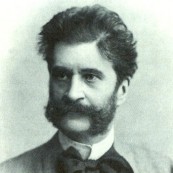

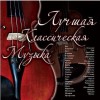
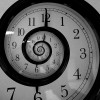


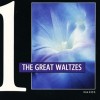
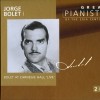
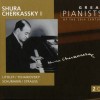
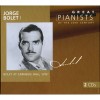
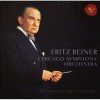
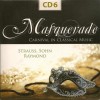
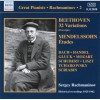
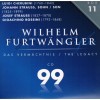
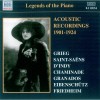
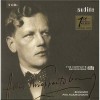
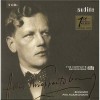
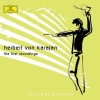
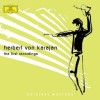
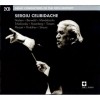
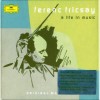

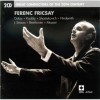


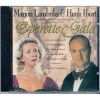
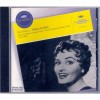
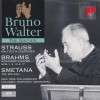
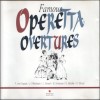
![Herbert von Karajan - Sternstunden der Musik [CD1of3]](http://static.classicalm.com/repository/disk-cover/small/3677-img1406715347234224.jpg)
![Herbert von Karajan - Sternstunden der Musik [CD2of3]](http://static.classicalm.com/repository/disk-cover/small/3678-img1406715754823749.jpg)
![Herbert von Karajan - Sternstunden der Musik [CD3of3]](http://static.classicalm.com/repository/disk-cover/small/3679-img1406716183842579.jpg)
